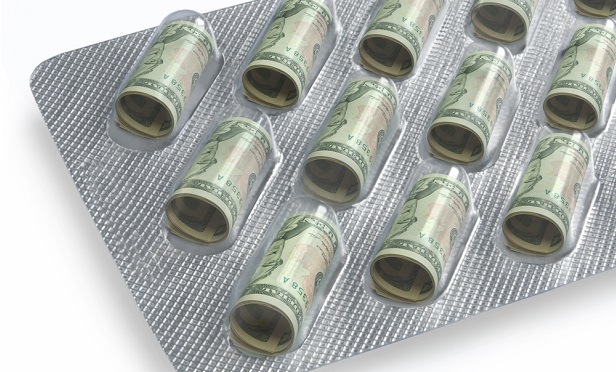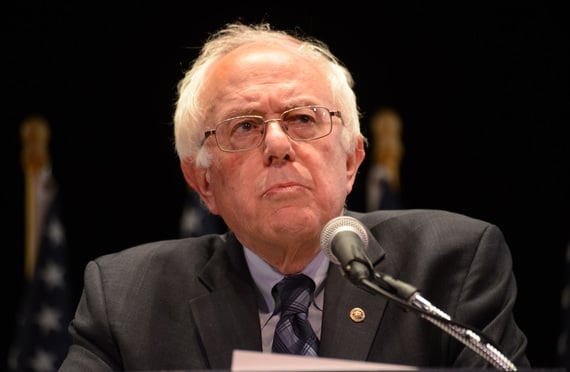 No one is claiming that eliminating rebates wouldstop escalating list prices, even if all insurers adopted thepractice. But some believe it would remove an important factor.(Photo: Shutterstock)
No one is claiming that eliminating rebates wouldstop escalating list prices, even if all insurers adopted thepractice. But some believe it would remove an important factor.(Photo: Shutterstock)
Few consumers have heard of the secret, business-to-businesspayments that the Trump administration wants to ban in an attempt to control drugcosts.
|But the administration's plan for drug rebates, announced Thursday, would end thepharmaceutical business as usual, shift billions in revenue and cause far-reaching,unforeseen change, say health policy authorities.
|In pointed language sure to anger middlemen who benefit from the deals,administration officials proposed banning rebates paid by drugcompanies to ensure coverage for their products under Medicare andMedicaid plans.
|Related: Study: Drug price hikes & rebates notcorrelated
|“A shadowy system of kickbacks,” was how Health and HumanServices Secretary Alex Azar described the current system in aFriday speech.
|The proposal is a regulatory change applying only to Medicareplans for seniors and managed Medicaid plans for low-income people.But private insurers, who often take cues from government programs,might make a similar shift, administration officials said.
|Drug rebates are essentially discounts off the list price.Outlawing them would divert $29 billion in rebates now paid toinsurers and pharmacy benefit managers into “seniors' pocketbooksat the pharmacy counter,” Azar said.
|The measure already faces fierce opposition from some in theindustry and is unlikely to be implemented as presented or by theproposed 2020 effective date, health policy analysts said.
|In any event, it's hardly a pure win for seniors or patients ingeneral. Consumers are unlikely to collect the full benefit ofeliminated rebates.
|At the same time, the change would produce uncertain ricochets,including higher drug-plan premiums for consumers, that wouldproduce new winners and losers across the economy.
|“It is the most significant proposal that the administration hasintroduced so far” to try to control drug prices, said RachelSachs, a law professor at Washington University in St. Louis. “ButI'm struck by the uncertainty that the administration has in whatthe effects would be.”
|Possible winners:
|Chronically ill patients who take lots of expensivemedicine
The list price for many brand-name medicines has doubled ortripled in recent years. But virtually the only ones affected bythe full increases are the many patients who pay cash or whoseout-of-pocket payments are based on the posted price.
|By banning rebates, the administration says its intention is toensure discounts are passed all the way to the patient instead ofthe middlemen, the so-called pharmacy benefit managers or PBMs.That means consumers using expensive drugs might see theirout-of-pocket costs go down.
|If rebates were eliminated for commercial insurance, wheredeductibles and out-of-pocket costs are generally much higher,chronically ill patients could benefit much more.
|Drug companies
Ending rebates would give the administration a drug-policy “win”that doesn't directly threaten pharmaceutical company profits.
|“We applaud the administration for taking steps to reform therebate system” Stephen Ubl, CEO of PhRMA, the main lobby forbranded drugs, said after the proposal came out.
|The change might also slow the soaring list-price increases thathave become a publicity nightmare for the industry. When listprices pop by 5 or 10 percent each year, drugmakers pay part of theproceeds to insurers and PBMs in the form of rebates to guaranteehealth-plan coverage.
|No one is claiming that eliminating rebates would stopescalating list prices, even if all insurers adopted the practice.But some believe it would remove an important factor.
|Possible losers:
|Pharmacy benefit managers
PBMs reap billions of dollars in rebate revenue in return forputting particular products on lists of covered drugs. Theadministration is essentially proposing to make those paymentsillegal, at least for Medicare and Medicaid plans.
|PBMs, which claim they control costs by negotiating withdrugmakers, might have to go back to their roots — processingpharmacy claims for a fee. After recent industry consolidation intoa few enormous companies, on the other hand, they might have themarket power to charge very high fees, replacing much of the lostrebate revenue.
|PBMs “are concerned” that the move “would increase drug costsand force Medicare beneficiaries to pay higher premiums andout-of-pocket expenses,” said JC Scott, CEO of the PharmaceuticalCare Management Association, the PBM lobby.
|Insurance companies
Insurers, who often receive rebates directly, could also be hurtfinancially.
|“From the start, the focus on rebates has been a distractionfrom the real issue — the problem is the price” of the drugs, saidMatt Eyles, CEO of America's Health Insurance Plans, a trade group.“We are not middlemen — we are your bargaining power, working hardto negotiate lower prices.”
|Patients without chronic conditions and high drug costs
Lower out-of-pocket costs at the pharmacy counter would befinanced, at least in part, by higher premiums for Medicare andMedicaid plans paid by consumers and the government. Premiums forMedicare Part D plans could rise from $3.20 to $5.64 per month,according to consultants hired by the Department of Health andHuman Services.
|“There is likely to be a wide variation in how much savingspeople see based on the drugs they take and the point-of-salediscounts that are negotiated,” said Elizabeth Carpenter, policypractice director at Avalere, a consultancy.
|Consumers who don't need expensive drugs every month could seeinsurance costs go up slightly without getting the benefits oflower out-of-pocket expense for purchased drugs.
|Other policy changes giving health plans more negotiating poweragainst drugmakers would keep a lid on premium increases,administration officials argue.
|Kaiser HealthNews (KHN) is a national health policy news service. It is aneditorially independent program of the Henry J. Kaiser Family Foundation whichis not affiliated with Kaiser Permanente.
|Read more:
Complete your profile to continue reading and get FREE access to BenefitsPRO, part of your ALM digital membership.
Your access to unlimited BenefitsPRO content isn’t changing.
Once you are an ALM digital member, you’ll receive:
- Critical BenefitsPRO information including cutting edge post-reform success strategies, access to educational webcasts and videos, resources from industry leaders, and informative Newsletters.
- Exclusive discounts on ALM, BenefitsPRO magazine and BenefitsPRO.com events
- Access to other award-winning ALM websites including ThinkAdvisor.com and Law.com
Already have an account? Sign In
© 2024 ALM Global, LLC, All Rights Reserved. Request academic re-use from www.copyright.com. All other uses, submit a request to [email protected]. For more information visit Asset & Logo Licensing.







